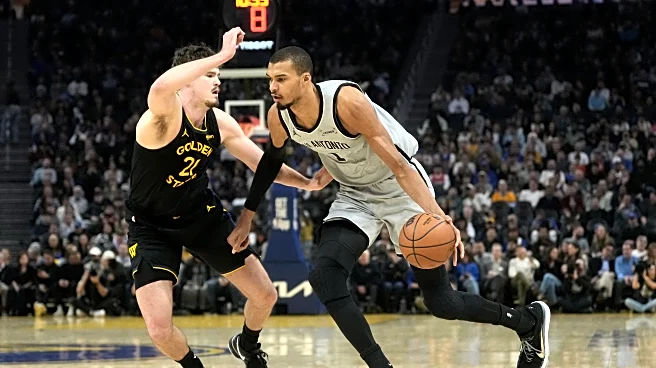What's Happening?
Clemson University's football team, led by head coach Dabo Swinney, is experiencing a challenging season following a 35-24 loss to SMU. This defeat marks Clemson's fifth consecutive loss against power
conference teams, a streak not seen since the early 1970s. Despite the team's struggles, Swinney remains secure in his position due to a substantial contract buyout clause. Swinney's current contract, a 10-year, $115 million extension, includes a $60 million buyout, making a coaching change financially burdensome for the university. Swinney, who has been with Clemson since 2003 and head coach since 2009, has led the team to significant successes, including two national championships. He remains optimistic about the team's future, emphasizing the need to rebuild and improve.
Why It's Important?
The situation at Clemson highlights the financial and strategic complexities involved in collegiate sports management. Swinney's substantial buyout clause serves as a protective measure for his position, illustrating how financial considerations can influence coaching decisions. The team's current performance could impact recruitment, fan support, and the university's athletic reputation. For stakeholders, including students, alumni, and sponsors, the team's success is crucial for maintaining the program's prestige and financial health. Swinney's ability to navigate this challenging period will be critical in determining Clemson's future trajectory in college football.
What's Next?
Clemson will need to focus on rebuilding and strategizing for upcoming games to break the losing streak. Swinney's leadership and the team's response to this adversity will be closely watched by fans and analysts. The university may also face pressure to reassess its long-term strategy for the football program, balancing financial commitments with performance expectations. As the season progresses, the team's performance will likely influence future decisions regarding coaching staff and player recruitment.









